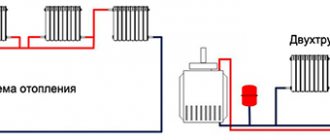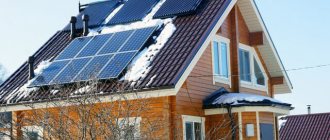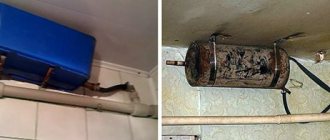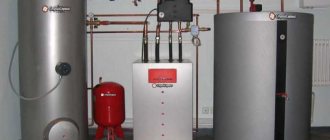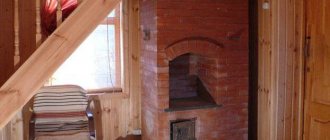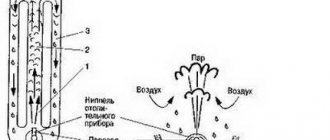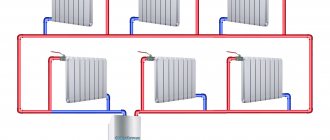How to heat your house without going broke?
Electric boiler
An electric boiler for heating a private home is, first of all, reliability, mobility, rationality and concern for health. It is easy to install and does not require additional boiler room. With its light weight and mobility, a boiler of this type can always be reinstalled in the places where it is needed. The device fully complies with fire safety standards. When choosing an electric boiler, pay attention to power. The larger it is, the larger the area you will heat. In addition, there will always be hot water in the house.
Infrared heating
The main advantage is that it does not dry out the air. Electricity consumption is much less. But in terms of heating, they are designed for certain squares or zones. Infrared heating of a country house is interesting when guests or the owner of the house and his family come on vacation and it is necessary to quickly heat the air and surrounding objects. For large houses with high ceilings, pay attention to medium-wave heaters, since long-wave heaters do not have enough power to provide the required temperature. If you give preference to stationary infrared ceiling-type heaters, they can completely replace gas heating, plus they do not take up much space. But this option is interesting only when someone plans to live in a private house in winter.
Monolithic quartz heater, electrical panel
Heating a house with electric panels is not an easy task, but not too difficult either. For large rooms, a system of several monolithic quartz heaters is used, which must be connected in parallel. They work using quartz. Also, special heating elements are built into the electrical panel, usually made of chromium and nickel. This allows you to quickly heat up the wall heater and quickly warm up the rooms, even if the owners have not been in the house for a long time. After the monolithic quartz heater is turned off, the internal parts retain heat for a long time and maintain the air temperature quite comfortable. The device does not require special care, but there is no need to expose it to layers of dust.
Air conditioning and split system
Should you heat your house in winter? When you have an air conditioner, it is much easier to find the answer to this question, because you always have an irreplaceable source of heat at hand in cold weather and coolness in summer. If you need to get 2 in 1 and not buy fans later, then this device will solve all the problems at once. Choose split system air conditioners to get:
- virtually silent heating in winter and cooling in summer;
- device with high power and low power consumption;
- heater out of the reach of children;
- climate control system;
- easy control from anywhere in the room;
- built-in filters and capacitors.
Solid fuel
Heating in winter and in cool times using solid fuel directly depends on where the heating is planned. What can be used for a garage will not be suitable for a home, for example. It is always necessary to take into account the needs of specific premises, not forgetting that heating should be as economical, safe and efficient as possible. Let's look at what heating options with solid fuel are available for a country house in winter. Please note right away that in addition to the device itself, you will also need to purchase fuel for heating:
- coal;
- firewood;
- pallets;
- fuel briquettes;
- wood chips;
- sawdust;
- peat.
To refuse gas completely or to install pipes to supply blue fuel is a purely individual question. If you think through the options and combinations of heating with electric or solid fuel, then gas may not be needed at all.
Solid fuel boiler
It is selected depending on the output power in relation to the volume of the house. The greater the output, the more heat. Requires a specially allocated space in the house, but does not require electricity. Raw materials are purchased independently. The emphasis must be placed depending on what result is needed. Wet raw materials lead to poor heating, so try to keep water or other moisture away. Autonomy and lack of dependence on gas supply are clear advantages of a solid fuel boiler, which distinguish it from other participants when choosing heating devices.
Metal stove (potbelly stove, Buleryan stove with water circuit)
The choice of a metal stove is influenced by the size of the house and the number of heated rooms. For spacious houses, a long-burning stove with high heat output is required. For smaller areas, standard hand-made metal stoves are also suitable. At the stage of preparatory work before installing a potbelly stove, it should be taken into account that the wall must have heat-resistant properties. Of course, the stove can be placed in the middle of the kitchen, which will simply not be convenient. Therefore, it is good to first protect the wall with heat-resistant materials, and lay out the screen using brick or ceramic tiles. In the case of Buleryan heating, the process occurs due to air convection, which, in addition to general heating, creates the effect of a warm floor. The air below enters the furnace tubes and warms up. Therefore, the closer it is to the floor, the more effective it is. In general, heating with a stove is very economical and easy to install, but you need to go to it at least 3-5 times a day to refuel.
Brick oven
Brick ovens come in different varieties. The stove can have an exclusively hob, a heating and cooking option, or be used only for heating premises. And although its installation requires more effort than in the case of electricity, it is still impossible to completely warm up the entire house with electrical appliances in severe frosts. But with a brick oven, if installed correctly, yes. To install it, it is best to seek the help of an engineer or someone who understands this process in order to correctly develop a design in accordance with the style of the house, buy all the necessary elements for constructing the stove and get the result without risk to health.
Electric heating
An electric fireplace is a combination of decorative and heat-carrying properties.
The easiest way to organize heating in a dacha with your own hands is to use electricity. The undoubted advantage of heating with electricity is that it can be arranged using both complex heating systems and household oil electric heaters or infrared panels.
Electric heating of a country house using complex systems allows you to programmatically regulate the degree and time of heating, which makes it possible not only to create the most comfortable environment, but also to save money. But the use of complex heating devices is impractical in a small home.
Portable and portable electric heaters
Portable wall-mounted radiator
Country houses are designed for seasonal living only, and installation of a complex heating system will cost a significant amount. In this case, it is much more effective to use portable electric heaters. The latter include oil batteries and infrared panels.
The principle of operation of these heaters is diametrically opposite: the oil heater heats the air around it, and the infrared panel heats the objects (floor, walls, furniture) on which the infrared rays fell. That is, it acts on the principle of solar rays, which makes it possible to demonstrate an efficiency of 92%.
But all portable heaters have a common advantage - they can be easily moved from room to room, heating only the room that is needed at the moment, or taken away to heat an apartment. If the home is not used year-round, in this case, the use of portable heaters will come in handy.
Electric boiler
Electric heating boiler for a country house
The most profitable option for heating a country house is an electric boiler, which heats it and, using a built-in pump, pumps coolant (water or antifreeze) through the pipeline system.
Heat from radiators spreads throughout the house. This system has only one drawback - to implement such a scheme, you will have to take care of the installation of heating pipes, which will significantly increase the cost of organizing the heating of a country house. This option is suitable when the dacha is used for winter living, is a two-story building, or heating is needed for a long period and in several rooms.
How much does it cost to heat a house? Calculation scheme.
When choosing a heating system, follow the following calculation scheme:
- decide how many rooms or square meters need to be heated;
- what result is needed: temporary or permanent;
- is there gas heating;
- Are you ready to combine stove and electric heating;
- what is the heat output?
This check will help sum up the question: how much does it cost to heat a house with electricity? Pay attention not only to how much a particular installation or heater will cost, but also what related materials will be needed:
- additional rooms for a boiler room;
- fuel storage tanks;
- purchase of high-quality solid fuel;
- a place for storing solid fuel with protection from moisture, etc.
Let us present the mathematical calculation scheme in an averaged version. We take into account a house of 50 sq.m. and heating season 6 months. If your house is 100 sq.m., multiply the result by 2, 150 sq.m. - by 3, etc. Taking into account the different costs of gas, electricity and various types of fuel in the regions of the Russian Federation and the CIS, the scheme is very approximate, but we make the following general calculations:
Gas heating:
- Standard gas boiler . Natural gas consumption 2m³/hour * 2160 hours (6 months) * gas cost in your region / 0.93 (93% efficiency). For example, the cost per cubic meter. meter of gas is 9.25 rubles, which means the calculation will be as follows: 2 m³/hour * 2160 hour * 9.25 rubles / 0.93 = 42968 rubles for 6 months. This means an average of 7161 rubles per month.
- Condensing gas boiler . 2m³/hour * 2160 hours * gas cost in your region / 1.07 (efficiency 107%)
Electric boiler
- A heating element electric boiler consumes an average of 7000 kW/hour per month * the cost of electricity in your region = the cost of heating per month
- An electrode electric boiler consumes 4200 kW/hour per month * cost of electricity in your region = cost of heating per month
Liquid fuel
Average consumption per season is 2 l/hour * 2160 hours (6 months) = 4320 liters * cost of diesel in your region = cost of heating with liquid fuel for the entire season
Solid fuel
- Wood (firewood) with a solid fuel boiler power of 20 kW burns about 9 kg of fuel per hour (if we take into account the efficiency of 80%): 2160 hours * 9 kg/hour = 19440 kg (19.4 tons). Price per ton of firewood in your region * 19.4t = cost of heating with wood per season. Don’t forget to add to this amount the cost of delivering firewood to your home.
- Coal 2160 hours * 4 kg/hour = 8640 kg (8.64 tons) * price per ton of coal in your region = cost of heating with coal for a season of 6 months. Also consider the cost of delivering coal to your home.
Methods of heating a dacha
When solving such an issue as heating a dacha, the options can be very diverse. The choice of the optimal solution to this problem largely depends on the intensity of use of the country house during the cold season, as well as on the budget.
In addition, the following factors influence the determination of the heating method for the dacha:
- presence of power lines;
- presence of a gas pipeline;
- purchase and possibility of storing in sufficient quantities solid (briquettes, firewood, coal) or liquid fuel (diesel fuel);
- technical parameters of the building itself (its dimensions, degree of insulation and fire safety).
Boilers can operate on different types of energy carriers:
- solid fuel;
- natural gas;
- electricity;
- liquid fuel (diesel).
If heating in a country house can be connected using any of the energy carriers, then the determining factor when choosing the type of country boiler is the cost of the equipment and heating costs. In addition, the duration of use of the country house is important: if the house is used only for summer living, it is more advisable to use portable heaters powered by electricity, and for year-round use, stationary systems based on heating boilers or stoves.
The most affordable energy sources for heating in the country are natural gas and wood. To heat the house with gas, you will have to install a gas boiler and a piping system. To heat a modern building with wood, it is not at all necessary to use an archaic stone stove, especially since it is characterized by large heat losses and uneven heat distribution in the room.
One of the oldest ways to heat your home is to light the stove. In small houses, such heating will be ineffective; it will take a very long time to warm up the room, even with a small living area. Heating with wood in a dacha can be realized either using a stove, fireplace or using a modern solid fuel boiler.
The potbelly stove is easy to install and operate; it not only heats the room, but also allows you to cook food. However, it can heat relatively small country houses (up to 60 sq. m.). As for the fireplace, it has excellent decorative properties and will decorate any home; it will warm you in damp weather, but will not cope well with heating in winter.
Heating the cottage with a fireplace
If the area of the house is higher than specified, then it is more advisable to use a solid fuel boiler. Such a heat generator will help not only effectively heat the room, but also significantly reduce labor costs for servicing the device (a solid fuel boiler produces much less soot and combustion waste, and loading firewood can be done only once a day.)
Gas heating of a country house
Compact wall-mounted gas boiler for a dacha
If at the dacha it is possible to connect to the main gas pipe, then the question of how to choose heating for a country house disappears by itself: the boiler is capable of heating a country house in a short time, and the cost of the energy spent will not be too burdensome for the owners .
Small, low-power wall-mounted models are suitable for dachas; they are more than enough to heat a small house. In a gas boiler, the coolant, just like in an electric boiler, is water or antifreeze. This heating scheme assumes the presence of an installed pipeline heating system in the house.
When heating a country house, a gas boiler can operate completely autonomously (without consuming electricity). In this case, the water in the pipeline does not circulate forcibly due to the operation of the pump, but independently according to the principle of convection. That is, hot water, expanding when heated, pushes cold water into the heating zone, and so on without interruption. However, to install a non-volatile boiler, it is necessary to take into account the slope of the pipes and the height of the heat generator relative to the radiators and heating pipes.
Despite the fact that a gas boiler can be installed with your own hands, it is unlikely that you can do it without a service specialist; his responsibilities include connecting the boiler to the gas main and starting the heating unit for the first time.
Connection diagram from gas holder and gas boiler
If you are determined to take advantage of the benefits of a gas boiler, but do not have the opportunity to connect to pipeline gas, then you will have to install a gas tank. These welded cylindrical or spherical tanks are made of steel and are installed underground. They store liquefied gas under high pressure. The container is replenished as needed. It is worth noting that such a gas supply scheme for a dacha will entail significant costs not only for the installation of the tank itself, but also for its regular replenishment.
Pipes with heating cable
Regardless of whether it is a gas boiler or an electric one, it is necessary to provide for the possibility of water freezing in the pipelines and, as a result, their destruction. Using antifreeze as a coolant or using pipes with a heating cable under insulating insulation will help to avoid such an accident. In addition, the boiler protection unit will help to protect the heating system. Since its operation requires electricity, emergency power supply to the boiler from a diesel generator should be provided.




